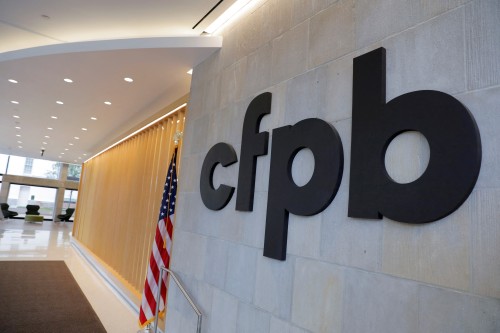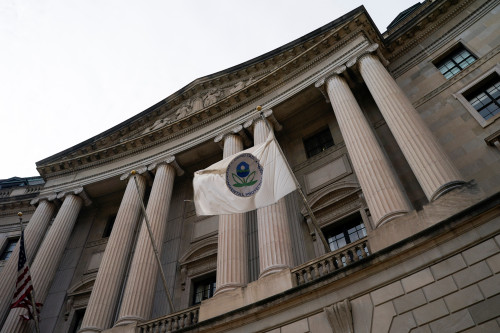By Pete Schroeder and Tatiana Bautzer
NEW YORK (Reuters) – Bank executives and lawyers anticipate the incoming Trump administration to place significant limits on the U.S. Consumer Financial Protection Bureau (CFPB), but the president’s populist leanings could leave room for some activity by the watchdog.
The CFPB has long been a target of Republicans, who argue the agency under Director Rohit Chopra oversteps its legal authority in writing rules and punishing financial firms. Speaking at a banking conference in New York, lawyers and former officials expected much of Chopra’s aggressive agenda to be upended.
In particular, Chopra’s efforts to establish policies outside the formal rule-writing process — via enforcement actions, informal guidance or other forms of communication — will likely end.
“It’s almost unquestionable that the bureau will be retracting most of the non-rule guidance it has issued under Chopra,” said John Wells, a partner at WilmerHale who previously served as deputy enforcement director at the CFPB.
Chopra is widely expected to either resign before Trump takes office in January or be promptly fired after Trump is sworn in. The CFPB did not immediately respond to a request for comment.
However, experts gathered here were skeptical there would be immediate, wholesale changes to the agency. The first Trump administration continued some work at the agency during his first term in office, and the incoming president floated populist policies like caps on credit card interest rates.
“There are moments, like the credit card interest cap, where…that might be when real questions arise as to whether states like West Virginia actually step up and go so far as to file a suit” to block it, said West Virginia Solicitor General Michael Williams.
Any dramatic changes to the agency long sought by the banking industry and Republicans, like changing the leadership structure to a bipartisan commission or letting Congress set its funding, could not be done unilaterally by Trump. Instead, they would require a more complicated process of legislation that needs approval by Congress.
And new agency leadership is likely to review existing CFPB work and reorient priorities as opposed to sweeping shifts.
“It’s more likely that things are going to change matter by matter,” Wells said.
Banks and other financial firms have frequently sparred with the CFPB, filing lawsuits to challenge rules imposing caps on credit card late fees and “open banking” rules regarding consumer financial data.
While it’s possible the CFPB will back away from fighting those lawsuits under Trump, other interested parties, like states, could fill the gap.
“There may be places where we step in and defend a rule or carry on litigation that the CFPB may decide to pull back from,” said New York Assistant Attorney General Christopher Filburn.
(Reporting by Pete Schroeder and Tatiana Bautzer in New York, editing by Lananh Nguyen and Nick Zieminski)



